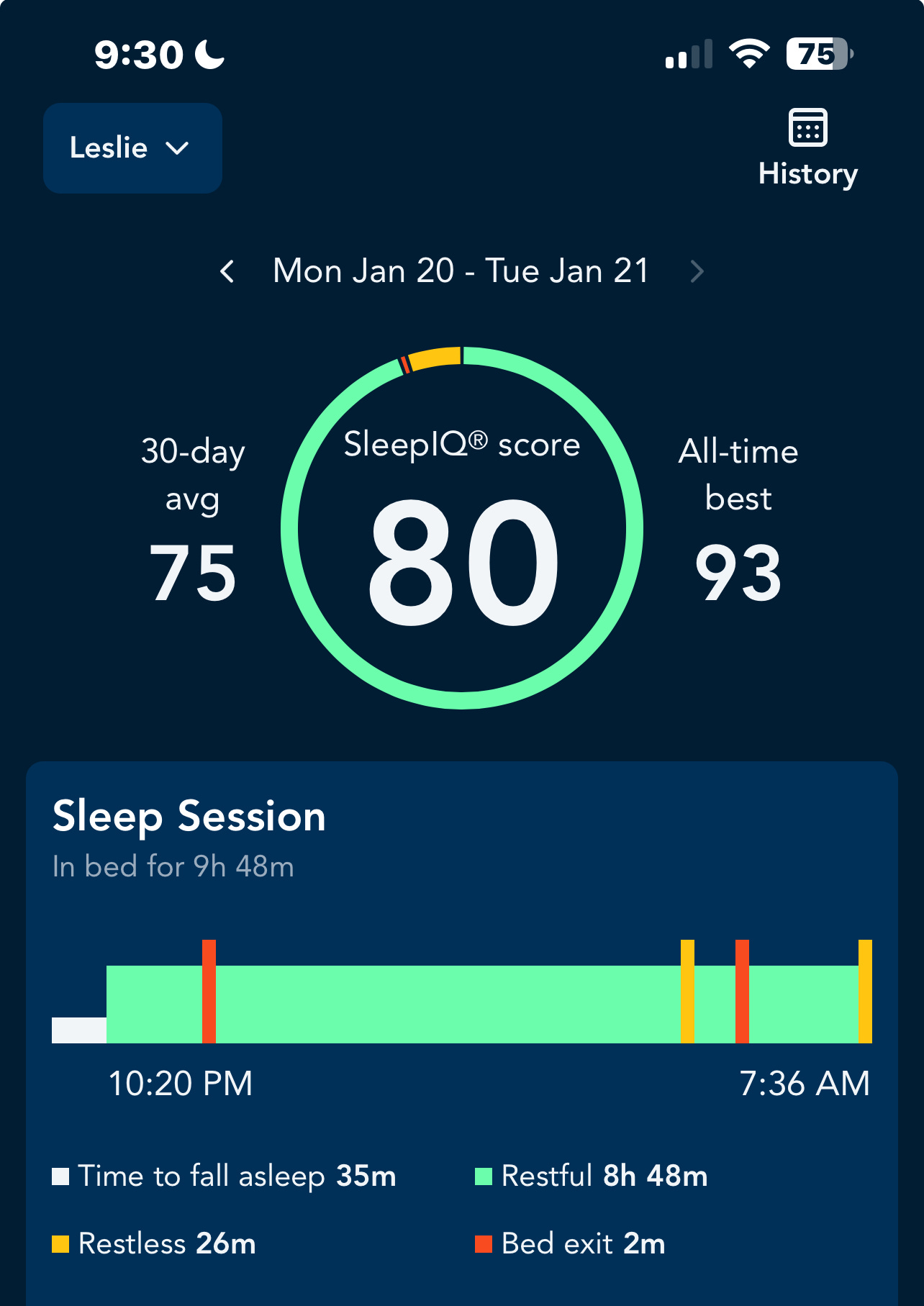Vitamin C Part 3: The Benefits of Liposomal and Does Vitamin C Raise Oxalate?
Also, a random anecdote about how vitamin C may be helping my bladder function better. Sorry for the TMI. Someone's gotta talk about these things.
[In case you missed it, here is part one of my vitamin C series: The Many Benefits of Vitamin C Supplementation, and here is part 2: The Glories of Vitamin C Part 2 which focuses on high-dose IV vitamin C.]
Before I get into today’s topic, I want to share a personal anecdote about vitamin C. Ever since I started taking the higher doses (2500 mg/day), I have been sleeping through the night more regularly without trips to the restroom. Although there’s a chance this is simply coincidental, sleeping better started the exact same time I started taking high doses of vitamin C.
Our sleep number bed tells me exactly how many times I exit the bed each night and at exactly what time so I have hard data to go by and not just my fuzzy memory.
Those who have been following me know for a while that I struggled for years with a painful bladder disorder called interstitial cystitis that greatly improved when I lost weight and inflammation through fasting. And although I’ve considered myself in remission for over two years now, I didn’t expect to ever sleep through the night again. After all, most women my age get up at least once never having had my issues.
The graph below shows a typical night before I started using high-dose vitamin C. (The yellow lines on the graphs mean restless and the red lines mean I exited the bed.)
Here was what my graph looked like when I was having a bad bladder night:
Now here’s last night’s graph which is what happens many times a week now.
I fell asleep at 10:20 but used the restroom at 11:30. But then I went from 11:30 to 6 without getting up. I consider that sleeping through the night because I rarely could go 6.5 hours before.
I know you’re probably wondering if the night disturbances aren’t simply related to how much water I drink in the evening. But the odd thing has always been that limiting my evening liquids never made a difference in how long I could sleep before needing to get up.
I’ve long wondered about the relationship between toxins and urinary frequency. My bladder used to have such a poor reaction to wine that I figured I needed to give up alcohol altogether. But then, strangely, I tried Dry Farm Wines (not a sponsor bc I have no sponsors), and I don’t have any bladder pain and frequency issues when I drink their wines.
Federal law does not require that wines list their ingredients on a label so not only can they be polluted from mold toxins, pesticides, and herbicides, but they can also contain all manner of additives such as preservatives, artificial flavors and colorings, and any terrible chemical you can think of. So since I have a perfectly fine time handling a high-quality wine, it must be the toxins and not the alcohol giving me all the trouble.
So since I know toxins bother my bladder, I’m wondering if my bladder is hyper-sensitive to any toxins, and perhaps the vitamin C neutralizes toxins from any source allowing me to have less pain and frequency issues. It’s certainly possible.
I’m going to keep with the high-dose vitamin C and see if I can keep up this amazing track record of sleeping through the night most nights. I currently take 500 mg of whole food vitamin C in the morning while fasting, 1000 mg of a cheap ascorbic acid later with a meal (it hasn’t been giving me heartburn like it did at first), and 1000 mg of liposomal with my first meal that breaks my fast.
Thank you for going on this TMI rabbit trail conjecture with me.
All About Liposomal Vitamin C
Keep reading with a 7-day free trial
Subscribe to Fast Well | Feast Well to keep reading this post and get 7 days of free access to the full post archives.







